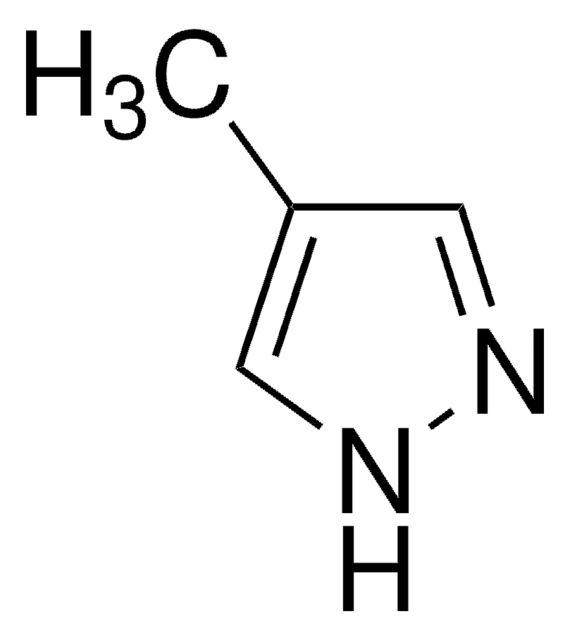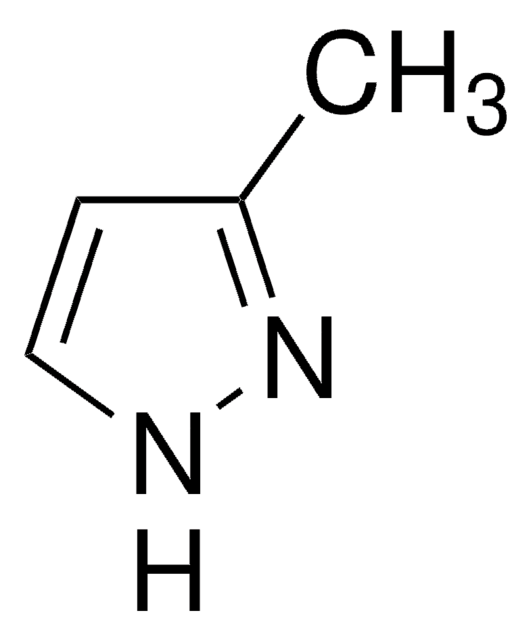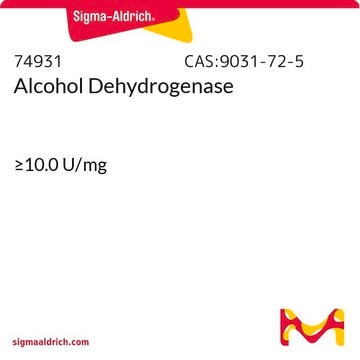M1387
4-Methylpyrazole hydrochloride
alcohol dehydrogenase inhibitor
Synonym(s):
Fomepizole
About This Item
Recommended Products
biological source
synthetic (organic)
Quality Level
Assay
≥95%
form
powder
mp
157-159 °C
solubility
methanol: 100 mg/mL, clear, colorless to yellow
storage temp.
2-8°C
SMILES string
Cl.Cc1cn[nH]c1
InChI
1S/C4H6N2.ClH/c1-4-2-5-6-3-4;/h2-3H,1H3,(H,5,6);1H
InChI key
PUCXJHNDMYZOHG-UHFFFAOYSA-N
Gene Information
human ... ADH1A(124) , ADH1B(125) , ADH1C(126)
Looking for similar products? Visit Product Comparison Guide
Application
- as a cytochrome P450 2E1 inhibitor
- as cytochrome P450 2E1 and alcohol dehydrogenase inhibitor in 1C11 neural progenitor cells
- to inhibit ethanol oxidation in VL-17A cells expressing alcohol dehydrogenase and HepG2 cells
Biochem/physiol Actions
Signal Word
Warning
Hazard Statements
Precautionary Statements
Hazard Classifications
Eye Irrit. 2 - Skin Irrit. 2 - STOT SE 3
Target Organs
Respiratory system
Storage Class Code
11 - Combustible Solids
WGK
WGK 3
Flash Point(F)
Not applicable
Flash Point(C)
Not applicable
Personal Protective Equipment
Choose from one of the most recent versions:
Certificates of Analysis (COA)
Don't see the Right Version?
If you require a particular version, you can look up a specific certificate by the Lot or Batch number.
Already Own This Product?
Find documentation for the products that you have recently purchased in the Document Library.
Our team of scientists has experience in all areas of research including Life Science, Material Science, Chemical Synthesis, Chromatography, Analytical and many others.
Contact Technical Service









